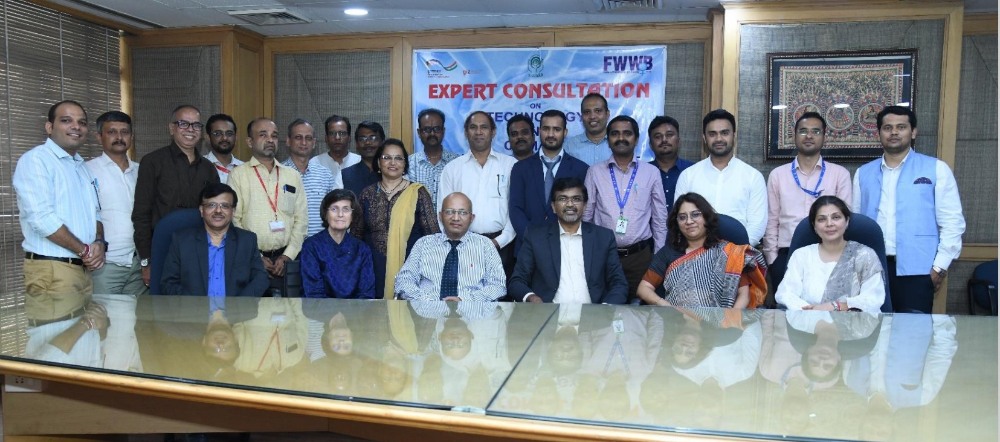
For a developing nation like India, climate change poses significant challenges to its economy, development, and vulnerability. The country heavily relies on groundwater and seasonal rainfall for agriculture, but climate change has led to a decrease in groundwater levels and increased water scarcity. Additionally, the occurrence of cyclones, floods, and extreme weather events has caused damage to crops, property, and infrastructure, affecting rural communities that depend on agriculture for their livelihoods. India’s national policies concentrate on climate change and focus on human development and economic-industrial growth, but there is a need for efforts to address climate risks and their impact on agriculture and rural development.
Expert consultation on Technology and Climate Resilience in Agriculture
In response to these challenges, FWWB India, with support from GIZ under the Indo-German Cooperation Project ‘Climate Adaptation and Finance in Rural India (CAFRI NABARD),’ initiated a program to address the management of climate risks and adaptation for financial institutions. The program consisted of a series of three dialogues held between January and March 2022, which brought together stakeholders to discuss the implications of climate change on financial institutions and identify imperatives for action. Building upon these findings, the program took the next step by organizing an expert consultation at NABARD regional office in Delhi on September 8th, 2022. The program aimed to bring together stakeholders from diverse sectors to discuss challenges and opportunities, generate actionable policy perspectives, and facilitate collaboration for climate risk mitigation and adaptation.
